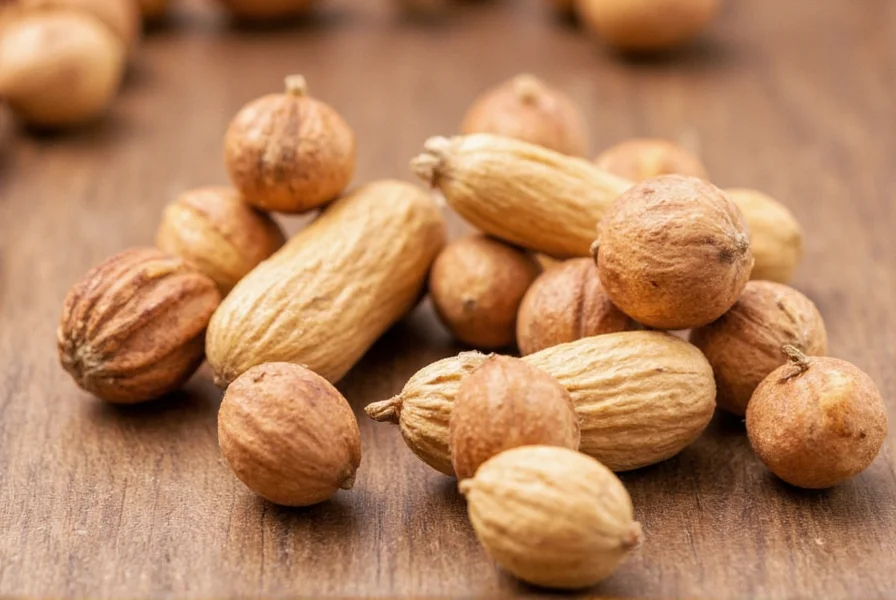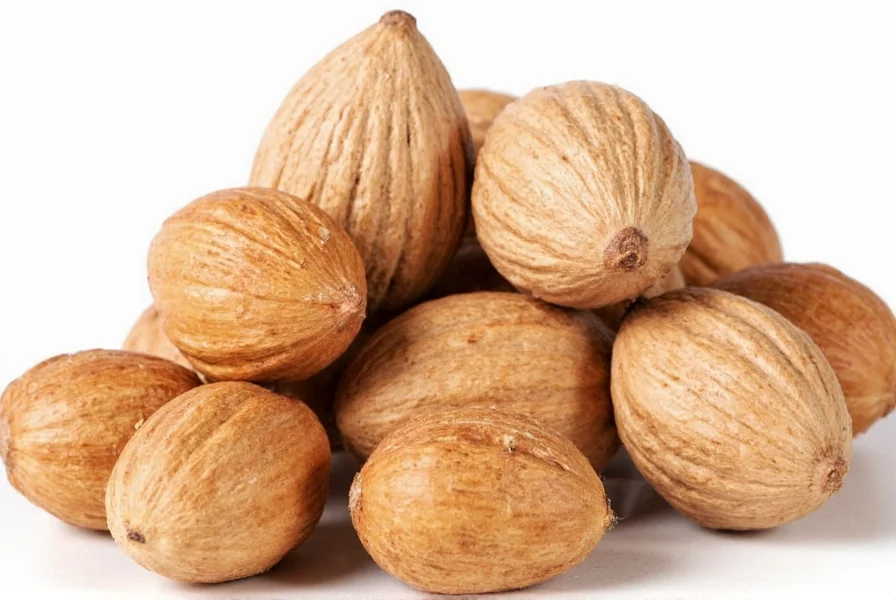When exploring the question is nutmeg a tree nut, it's essential to understand the botanical classification behind this common kitchen spice. Many people confuse nutmeg with tree nuts due to its name containing the word "nut," but this is a misnomer that has led to unnecessary dietary restrictions for some individuals with food allergies.
Botanical Classification of Nutmeg
Nutmeg comes from the Myristica fragrans tree, native to the Banda Islands in Indonesia. The tree produces a fruit that resembles an apricot. Inside this fruit lies a seed surrounded by a lacy red covering called mace. The seed itself is what we know as nutmeg, while the mace covering is dried and used as a separate spice.
From a botanical perspective, nutmeg is classified as a seed, not a nut. True tree nuts are hard-shelled fruits that contain both the seed and fruit fused together. Examples include walnuts, almonds, and pecans. In contrast, nutmeg is simply the seed of a tropical fruit, making its classification fundamentally different.
Tree Nuts vs. Nutmeg: Understanding the Difference
The confusion around is nutmeg a tree nut allergy concern stems from naming conventions rather than biological reality. Major food allergy organizations, including the American College of Allergy, Asthma, and Immunology (ACAAI), clarify that nutmeg does not fall under the category of tree nuts that commonly trigger allergic reactions.
| Item | Botanical Classification | Common Allergen Status |
|---|---|---|
| Nutmeg | Seed from Myristica fragrans fruit | Not a common allergen |
| Almonds | True tree nut | Common tree nut allergen |
| Walnuts | True tree nut | Common tree nut allergen |
| Mace | Aril covering of nutmeg seed | Not a common allergen |
| Peanuts | Legume (not a tree nut) | Common allergen (separate category) |
Nutmeg Allergies vs. Tree Nut Allergies
While is nutmeg safe for tree nut allergy is a common concern, research indicates that allergic reactions to nutmeg are extremely rare and unrelated to tree nut allergies. Tree nut allergies involve immune responses to specific proteins found in true tree nuts, which are absent in nutmeg.
According to clinical studies, there is no significant cross-reactivity between nutmeg and tree nuts. This means that if you have a diagnosed tree nut allergy, you generally don't need to avoid nutmeg unless you've had a specific reaction to it. However, individuals with seed allergies might want to exercise caution, though seed allergies are much less common than tree nut allergies.

Practical Guidance for Those with Food Allergies
For individuals managing nutmeg tree nut allergy cross reaction concerns, here are evidence-based recommendations:
- Read labels carefully: While nutmeg itself isn't a tree nut, some processed foods might contain both nutmeg and actual tree nuts.
- Consult your allergist: If you have severe tree nut allergies, discuss nutmeg with your healthcare provider before adding it to your diet.
- Be aware of potential contamination: In facilities that process both tree nuts and spices, cross-contamination could occur.
- Understand your specific allergy: Not all "nut" allergies are the same—peanut allergies, tree nut allergies, and potential seed allergies are distinct conditions.
Nutmeg in Cooking and Medicine
Nutmeg has been used for centuries both as a culinary spice and in traditional medicine. In small amounts (typically 1/8 to 1/4 teaspoon per dish), it adds warmth to both sweet and savory recipes. However, consuming large quantities of nutmeg can cause adverse effects due to myristicin, a compound that in high doses can have psychoactive properties.
For culinary purposes, freshly grated nutmeg from whole seeds provides superior flavor compared to pre-ground versions. Store whole nutmeg in an airtight container away from light and heat to preserve its aromatic compounds.

Addressing Common Misconceptions
One persistent myth is that what is nutmeg classified as makes it dangerous for those with nut allergies. This confusion likely stems from:
- The word "nut" in its name
- Lack of clear labeling standards for spices
- General confusion about food classifications
- Overly cautious allergy advice that groups all "nut"-named items together
Food regulatory agencies like the FDA classify tree nuts as specific items (almonds, Brazil nuts, cashews, etc.) but do not include nutmeg in this category. Understanding this distinction helps prevent unnecessary dietary restrictions while maintaining safety for those with genuine allergies.
When to Exercise Caution with Nutmeg
While nutmeg is generally safe for those with tree nut allergies, certain situations warrant caution:
- Pre-mixed spice blends: These may contain actual tree nuts or be processed in facilities with tree nuts
- Processed foods: Some baked goods or prepared meals might combine nutmeg with actual nuts
- Individual sensitivities: Though rare, some people may have specific sensitivities to nutmeg
- Medication interactions: Nutmeg may interact with certain medications, particularly antidepressants
Conclusion
The question is nutmeg a tree nut has a clear botanical answer: nutmeg is a seed, not a tree nut. This distinction matters significantly for individuals managing food allergies, as it means most people with tree nut allergies can safely enjoy nutmeg-containing foods. Always consult with a healthcare professional about your specific allergy concerns, but don't unnecessarily restrict nutmeg from your diet based solely on its name.
Frequently Asked Questions
Is nutmeg considered a tree nut for allergy purposes?
No, nutmeg is not considered a tree nut for allergy purposes. It's a seed from the Myristica fragrans tree fruit and does not contain the proteins that trigger tree nut allergies. Most people with tree nut allergies can safely consume nutmeg.
Can someone with a tree nut allergy eat nutmeg?
Generally, yes. Nutmeg is botanically a seed, not a tree nut, and there's no significant cross-reactivity between nutmeg and tree nuts. However, always consult your allergist before adding it to your diet if you have severe allergies, and check for potential cross-contamination in processed foods.
Why is nutmeg not a tree nut despite having 'nut' in its name?
The name 'nutmeg' is a historical misnomer. Botanically, it's the seed of the Myristica fragrans fruit, while true tree nuts are hard-shelled fruits where the seed and fruit are fused together. The naming convention doesn't reflect its actual botanical classification.
Does nutmeg contain the same allergens as tree nuts?
No, nutmeg does not contain the same allergenic proteins found in tree nuts. Tree nut allergies involve specific proteins like Jug r 1 in walnuts or Cor a 9 in hazelnuts, which are absent in nutmeg. Allergic reactions to nutmeg itself are extremely rare and unrelated to tree nut allergies.
What's the difference between nutmeg and mace?
Both come from the same fruit. Nutmeg is the seed inside the fruit, while mace is the lacy red covering (aril) that surrounds the seed. They have similar flavor profiles but mace is slightly more delicate and citrusy. Neither is classified as a tree nut.











 浙公网安备
33010002000092号
浙公网安备
33010002000092号 浙B2-20120091-4
浙B2-20120091-4